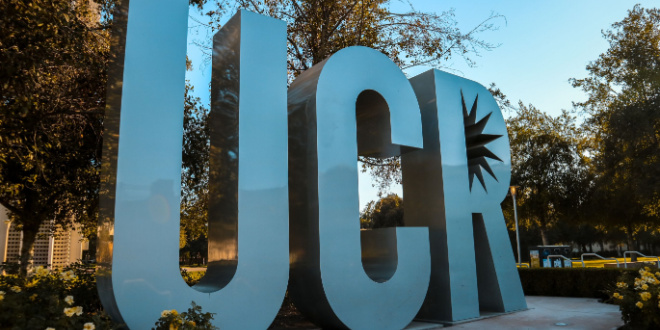Riverside is going to court to try to stop an ambitious expansion plan by UC Riverside.
In a lawsuit filed Aug. 23 in Riverside County Superior Court, the city alleges that the UC Board of Regents did not adequately address the potential environmental issues related to its 2021 Long Range Development Plan.
Negotiations between the city and the board to resolve those issues have not been successful, according to the lawsuit.
“The city is bringing this action to challenge the UC Regents’ failure to adequately analyze and mitigate the environmental impacts of the Long Range Development Plan, in the final impact report it prepared and ultimately certified,” the lawsuit reads.
“The expansion of campus enrollment and facilities may negatively affect the surrounding environment.”
University officials maintain that the expansion is needed to handle an anticipated increase in enrollment from approximately 26,000 students to 35,000 students. It will also help bring UC Riverside’s student-staff and student-faculty ratios in line with other UC campuses, while creating more development on the east end of the campus and expanding and improving instructional and research facilities.
“The 2021 Long Range Development Plan provides a framework for the future development of our physical campus,” Chancellor Kim Wilcox said in the introduction to the plan. “(It) is not a mandate to build or to expand enrollment. It is a framework to help guide development of the university.
“Any new growth will require additional resources.”
But any growth will also cause some negative impact(s) that must be addressed, something the development plans too often doesn’t do, according to the lawsuit.
The plan fails to address a long list of potential hazards, according to the lawsuit: its impact on agricultural resources, greenhouse gas emissions, hydrology and water quality, population and housing, and public services.
It will could also adversely affect recreation, air quality, transportation, and utilities, the lawsuit maintains.
“By failing to properly analyze the (development plan’s) significant impacts, the UC Regents did not proceed in the manner required by law,” the lawsuit states. “The analysis and findings were not based on substantial evidence.”
Lawsuits between cities and institutions of higher learning aren’t unusual, but Riverside’s action against UC Riverside is noteworthy because of its scope, and because those two entities have generally enjoyed good relations since UC Riverside was founded in 1954.
But the lawsuit makes it clear that Riverside officials believe the university’s expansion plans are a threat to Riverside quality of life, and that it must undergo major changes.
“The city council has taken this step to safeguard taxpayer dollars and mitigate the impacts of UC Riverside’s growth,” Mayor Patricia Lock Dawson said in a statement. “It’s an important institution in our community, and I am hopeful these issues can be resolved in a timely manner.”
Dawson declined further comment.
Those remarks are the only formal statement made by any city official regarding the lawsuit. It does not appear on the city’s website or in any other city publication.
Officials with the University Neighborhood Association, a community group that has filed unsuccessful lawsuits regarding proposed expansion of the UC Riverside campus, did not return calls seeking comment.
First among those issues is accounting for approximately 5.5 million square feet of academic buildings, support facilities being added to the campus, as well as enough on-campus student housing to accommodate 7,489 beds.
All of that is anticipation of approximately 11,000 more students and 2,845 more faculty and staff by the 2035-’36 academic year.
Riverside officials first raised objections to the expansion plan five years ago, in a letter written by then-City Manager Al Zelinka to Stephanie Tang, UC Riverside’s campus environmental planner.
In the letter – which was signed by Dawson, members of the city council and other high-ranking city officials – Zelinka notes that the California Environmental Quality Act requires all public universities to lessen the impact of any environmental problems caused by their expansion.
The letter then lists some of the city’s specific objections to the expansion plan, including the that it does not comply with a 2018 city ordinance meant to reduce excessive lighting, or “light pollution.”
The letter also notes that the expansion plan would cost the campus land used for agricultural research, that its air quality research is based on faulty numbers, and that it will provide only enough on-campus housing for 40 percent of university’s students, which Riverside officials call inadequate.
It also takes the expansion plan to task for not establishing how the university will pay for the added police and fire personnel that will be needed to protect a larger and more populated campus.
“The city is seriously concerned about the lack of commitment by UC Riverside to provide adequate housing and necessary city services for current and future students, staff and faculty,” the letter states.
UC spokesman Ryan King did not return calls seeking comment, a common action regarding pending litigation.
 IE Business Daily Business news for the Inland Empire.
IE Business Daily Business news for the Inland Empire.


